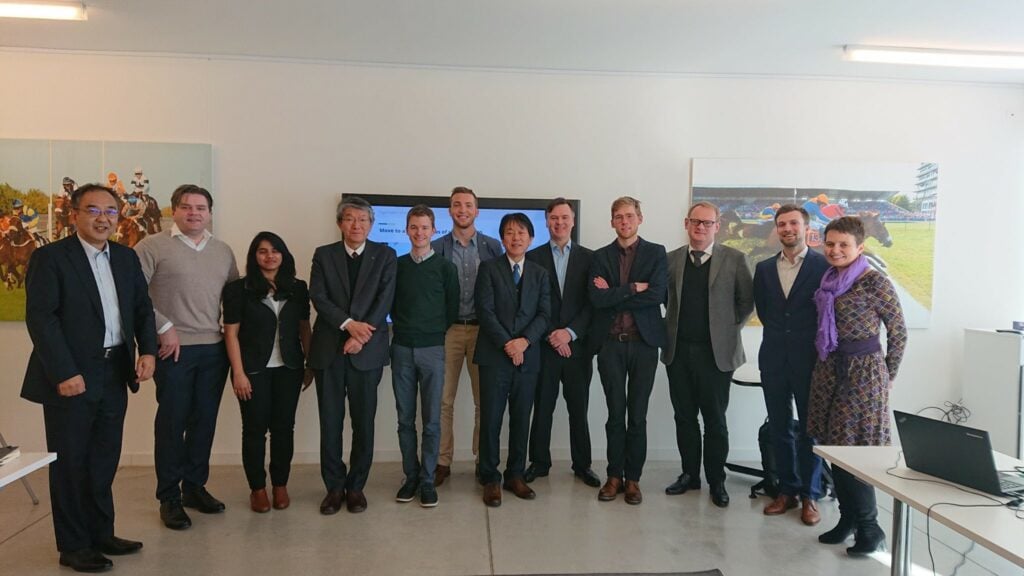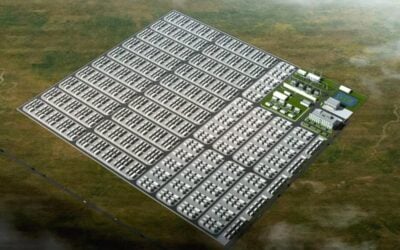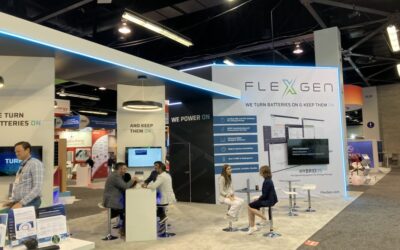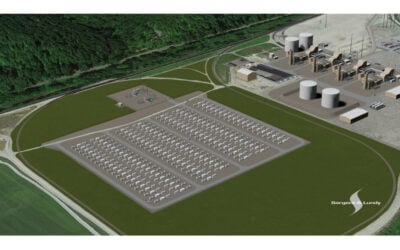
Financial close has been reached for a 25MW / 100MWh battery energy storage system (BESS) project in Belgium which has also been successful in a grid capacity auction alongside gas-fired power plants.
The battery system will be built in Ruien, East Flanders, co-developed through a joint venture (JV) between the European arm of Japanese engineering and infrastructure company Nippon Koei and Belgian renewable energy company Yuso. It’s expected to be completed in the final quarter of 2022, connected to Belgium’s high voltage grid.
Enjoy 12 months of exclusive analysis
- Regular insight and analysis of the industry’s biggest developments
- In-depth interviews with the industry’s leading figures
- Annual digital subscription to the PV Tech Power journal
- Discounts on Solar Media’s portfolio of events, in-person and virtual
Located on the site of a retired 800MW coal power plant and connected to a 70kV substation nearby, the Ruien BESS will deliver ancillary services and operate in short-term electricity arbitrage as well as entering a new capacity mechanism market which is opening up in Belgium.
With Nippon Koei acting as lead developer on the project Yuso began planning in 2018, asset management and project development group Aquila Capital is also partnering on financing, procuring, developing and operating the BESS.
Yuso — in which Nippon Koei acquired a 29% ownership stake in late 2019 — will optimise the system’s operation for a period of 10 years. The Belgian company has created the Yuso Flex Platform which provides routes-to-market for battery storage systems, controlling, monitoring and optimising the systems and their interaction with market opportunities.
Along with announcing the Ruien project’s financial close yesterday, Yuso also said that the BESS has been successful in Belgium’s new Capacity Remuneration Mechanism (CRM) auction which took place in September.
The CRM was introduced to enable 2,300MWe of new gas power plants to help balance the grid as higher shares of renewable energy come onto it by 2025 and nuclear power plants are retired. However, Yuso said the CRM auction design is “essentially technology agnostic” and so non-gas power plant technologies can also take part.
Within this context, Yuso said battery storage systems charged from renewable energy can play the roles of filling in gaps in supply and adding flexibility to the network’s operational profile just as well as gas.
Batteries and renewables are also low in carbon emissions, the company pointed out, while their use would also help reduce Europe’s dependency on gas and its volatile pricing and import dynamics.
“The Ruien project takes advantage of the fast response and easy scalability of batteries and applies BESS technology as a key factor in the effective integration of VRE sources into power systems,” Nippon Koei vice president and representative director Hiroyuki Ashiyoshi said.
Aquila Capital CEO and co-founder Roman Rosslenbroich said his company considers “batteries as a crucial asset class for the energy transition by balancing the power grid and enabling the integration of renewables”.
Battery storage looking to find its place in Belgium’s energy transition
The project will be one of Belgium’s largest BESS. In January this year commodities trading company Trafigura said its renewable energy JV Nala Renewables is developing an identically-sized battery project in Balen, northeast Belgium.
So far development of BESS projects in the country has largely focused on activity in the commercial and industrial (C&I) sector, helping businesses including manufacturers and logistics centres to reduce energy costs, enable back up power and use more renewable energy.
Utility-scale batteries have been cited as a potential answer to various energy market concerns including negative electricity pricing as well as being necessary to enable a low carbon energy transition for Europe. However, in November 2020, EStor-Lux, a consortium developing a 10MW / 20MWh BESS in Belgium’s southern Wallonia region said the absence of policy support schemes made development a challenge.
EStor-Lux did achieve financial close for its own project though and said it would be able to provide a wide range of services “with higher added value” to the grid operator and to market players. In June, analysts from energy storage consultancy Clean Horizon pointed out the coming of Europe-wide markets for automated frequency restoration reserve (aFRR), which Belgium is implementing next year and could be a useful revenue stream for BESS.






